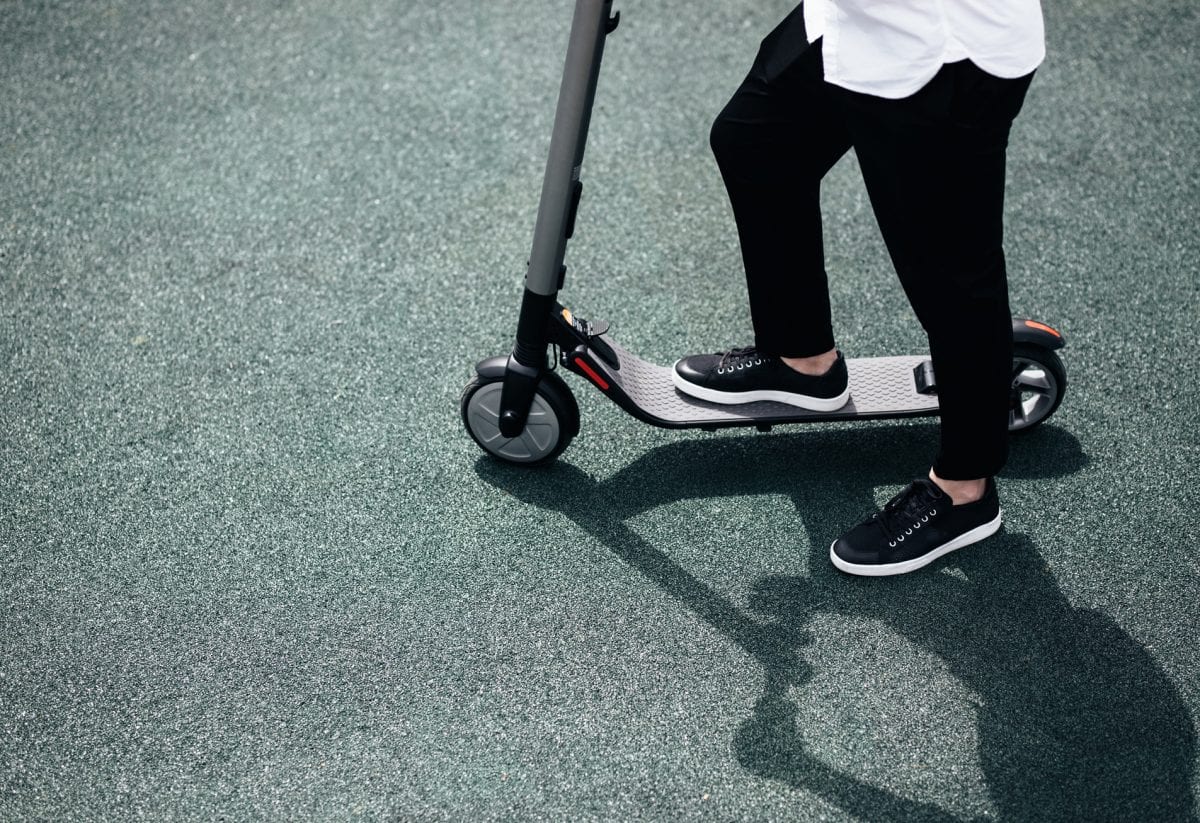How about them electric scooters? If you live or work anywhere near downtown Austin or in any major Texas city, really, you’ve stumbled across them (perhaps even literally). Dockless e-scooters are everywhere, and as they zoom by pedestrians, narrowly escape being hit by other vehicles, and are left in precariously random places on the sidewalks, they’ve become a polarizing issue.
But aside from how you personally feel about e-scooters (annoyance or convenience?), employers should address the legal aspect of how they affect workers. It’s logical to assume that if your employees have access to e-scooters outside your business doors and travel short distances for business meetings, events, and lunches, that they may choose that mode of transportation. At the root of the issue is this: Are you (the employer) liable if an employee gets injured or injures someone else while using an e-scooter during work?
It’s certainly a question to discuss with your HR and legal counsel. Here are a few considerations to help frame your discussion:
- Start with your jurisdiction’s policies. Austin has dockless mobility guidelines in place that cover electric bikes and scooters. It’s just a code of ethics at the moment, but it’s a place to start. Other Texas cities like San Antonio are quickly passing policies, too.
- Cover your bases. It’s not just obvious accidents that happen on e-scooters. A Denver worker was recently attacked (and hurt) by a pedestrian who thought he was unlawfully driving it on a sidewalk (which wasn’t illegal). This and other interesting considerations like the maintenance of the e-scooters and using e-scooters while intoxicated are discussed in this post by employment law firm Fisher Phillips. The post also lists provisions you may want to borrow from vehicle use policies (like the employee being responsible for any citations received).
- Stay informed. SHRM has an entire resource section devoted to e-scooters at work. Take a look at the different topics that might affect your workforce including rental reimbursements and usage during foreign travel. Large employers with their own campuses should consider specific policies and can use examples from others—mostly college campuses–that already have them in place. The University of Texas just released campus rules, which are posted here.
We’re experiencing the Wild West of electric vehicle adoption right now, which means many employers won’t know about the holes in their HR policies until it’s too late. Don’t be one of them. Talk to your HR and legal counsel about how well you’re covered before an employee crashes (or trips) into a problem.





